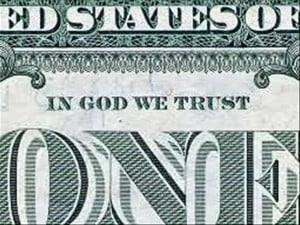This is part of a series of articles about how Republicans convince its base to vote against their own interests. Today, we examine how some of the wealthiest Americans have taken over the Republican Party, thereby causing them to mislead most Republicans and some Independents into voting against their own interests.
Inequality of wealth is the greatest economic and social problem that our country now faces. The statistics state the case in a shocking manner. The wealthiest 1 percent in the United States owns more wealth than the bottom 90 percent [1] and 95 percent of economic gains go to wealthiest 1 percent of Americans. [2]
 In 2011, the 400 wealthiest Americans had more wealth than 50 percent of all Americans combined. [3] The amount of money in bonuses on Wall Street last year is twice the amount all minimum-wage workers earned in the country combined. [4] The wealthiest 85 people on the planet have more money that the poorest 3.5 billion people combined. [5] Unbelievably, only 4 of the 150 countries have a worse inequality of wealth problem than does the U.S. [6]
In 2011, the 400 wealthiest Americans had more wealth than 50 percent of all Americans combined. [3] The amount of money in bonuses on Wall Street last year is twice the amount all minimum-wage workers earned in the country combined. [4] The wealthiest 85 people on the planet have more money that the poorest 3.5 billion people combined. [5] Unbelievably, only 4 of the 150 countries have a worse inequality of wealth problem than does the U.S. [6]
The poorest Americans do come out ahead in one statistic: the bottom 90 percent of America owns 73 percent of the debt in the US. [7]
This situation has not always been so dire. From 1947 to 1973, all along the economic spectrum, Americans had become a little better off with each passing year while productivity had risen by 97 percent and median wages had risen by 95 percent. [8] Paradoxically, from 1973 to 2011, working class productivity grew 80 percent, while median hourly compensation, after inflation, grew by just 6.4 percent. Since 2000, productivity has risen 23 percent, while real hourly pay has essentially flat-lined. [9]
During the past 40 years, low-wage jobs have disproportionately increased, while employment has become less secure and benefits have been cut. [10]
Polling shows that Democrats view wealth inequality quite differently than most Republicans. A Pew Research Center survey in March 2015 concluded that 55 percent of GOP members believe the economic system is fair to most people, but 75 percent of Democrats and 63 percent of Independents believe it strongly favors the wealthy.
The GOP attitude was reflected in a comment by Mitt Romney during the 2012 Presidential race, who said “[t]here are 47 percent of the people…who are dependent upon government, who believe that they are victims. …These are people who pay no income tax….and so my job is not to worry about those people. I’ll never convince them that they should take personal responsibility and care for their lives.”
Presidential candidate Jeb Bush recently made headlines for claiming that working class “people need to work longer hours.” His brother, President Bush, expedited the growing wealth inequality with the “Bush tax cuts” which disproportionately benefit the wealthy.
The results of this should have been predictable. The top 1 percent of the population enjoyed 65 percent of income growth between 2002 and 2007. [11] In 2000, 11.3 percent of the population was in poverty. By 2009, that percentage had increased to 14.3 percent. Job growth under Bush was the weakest in any business cycle since the 1950s and was only one-third of the rate seen between 1989 and 2000 (the Clinton years). In 2001, the surplus in the federal budget was $127 billion. The 2010 budget had a budget deficit of $1.3 trillion. The long-term national debt more than doubled while Bush was in office. [12] This is further evidence that “trickle-down economics” is a myth.
What should our attitude as Christians be on this issue? There was also wealth inequality in Jesus’ day. In the Sermon on the Mount, Jesus exhorted his hearers to sell their earthly goods and give to the poor, and so provide themselves with “a treasure in heaven that will never fail, where no thief comes near and no moth destroys” (Luke 12.33). In Luke 12:34, Jesus added “[f]or where your treasure is, there will your heart be also”.
Jesus stated in the Parable of the Rich Fool (Luke 12: 13-21) that he who lays up treasure for himself is not rich toward God. The person whose identity is tied up with his or her possessions, status, and/or achievement and is driven by acquiring them, can so easily end up unaware of the plight of his neighbor.[13]
Pope Francis has often shown a great sensitivity to the plight of poor people who are victimized by the wealthy. He spoke recently in South Korea of those of “…us who live in societies where, alongside immense wealth, dire poverty is silently growing; where the cry of the poor is seldom heeded and where Christ continues to call out to us, asking us to love and serve him by tending to our brothers and sisters in need.”
In the golden rule, Jesus taught us that “whatever you wish that others would do to you, do also to them….” [14] I believe the golden rule is the central theme of the Democratic Party, and yet another reason why when Christians vote Republican, they vote against their own financial interests and the teachings of Christ.
Terry Frye is an attorney, an elected constitutional officer, a minister, a writer, a longtime community organizer and a political activist who has lived his entire life in rural Southern Appalachia.
Footnotes:
[1] Rugaber, Christopher S.; Boak, Josh (January 27, 2014). “Wealth gap: A guide to what it is, why it matters”. AP News.
[2] Svaldi, Aldo (January 11, 2014), “Robert Reich: Income inequality the defining issue for U.S.”, The Denver Post, retrieved January 26, 2014.
[3] Wealth, Income, and Power by G. William Domhoff of the UC-Santa Barbara Sociology Department.
[4] A Mind Boggling Statistic About Wall Street Bonuses, CBS Money Watch, March 17, 2014.
[5] 85 Richest Now Have As Much Money as Poorest 3.5 Billion, USA Today, 9:27 a.m. EST November 7, 2014.
[6] Weissmann, Jordan (March 11, 2013). “Yes, U.S. Wealth Inequality Is Terrible by Global Standards”. The Atlantic.
[7] 35 Mind Blowing Facts about Inequality, AlterNet, July 13, 2015.
[8] New York Times Sunday Review, Our Economic Pickle, January 12, 2013.
[9] Id.
[10] The American Prospect; The Forty Year Slump, by Harold Meyerson, November 12, 2013.
[11] Source: Bureau of Labor Statistics, Economic Policy Institute
[12] Id.
[13] The Parables of Jesus: A Commentary, by Arland J. Hultgren, pg. 109.
[14] Matthew 7:12











